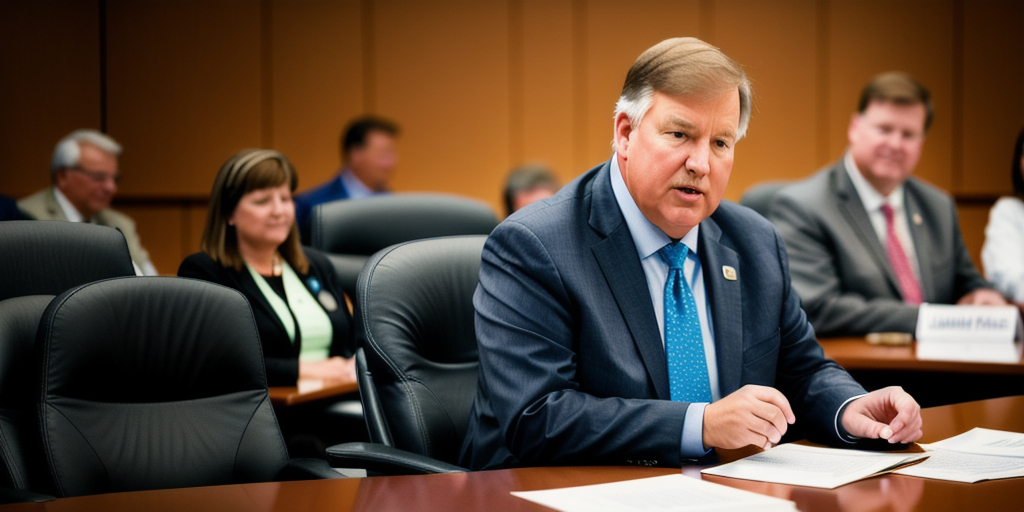
Billings City Council considering changes to Tax Increment Finance districts
How did your country report this? Share your view in the comments.
Diverging Reports Breakdown
Billings City Council considering changes to Tax Increment Finance districts
Montana Legislature passed Senate Bill 3 this year, which states the city must appoint advisory boards to oversee tax increment finance districts. Currently, board members are appointed by stakeholder groups within the district. Some worried the change could lead to cuts, hurt the local economy and threaten downtown development programs. But now, after a Billings City Council work session on Monday, there is hope that TIF districts could continue, largely functioning the same. The city council will look at approving how to comply with the new law at a future meeting. The Downtown Billings Alliance had great concern before the city council work session, but now it looks like its work will continue, a spokeswoman says. The City of Billings and the Business Improvement District and the East Billings Urban Renewal District are among the districts affected.
The Montana Legislature passed Senate Bill 3 this year, which states the city must appoint advisory boards to oversee tax increment finance districts. Currently, board members are appointed by stakeholder groups within the district.
Watch TIF board concerns story here:
Billings city council looks at appointing boards for tax increment finance districts
Some worried the change could lead to cuts, hurt the local economy and threaten downtown development programs.
But now, after a Billings City Council work session on Monday, there is hope that TIF districts could continue, largely functioning the same. TIF districts provide incentives for development in blighted areas by leveraging the anticipated increase in the tax base from improvements.
The new law states the local governing body, such as the City of Billings, shall appoint a board of the Urban Renewal Agency, another term for a TIF district.
“We believe that we can comply with Senate Bill 3 and also comply with the city code,” said Katy Schreiner, CEO of the Downtown Billings Association, which oversees one of the city’s TIF districts.
Senate Bill 3 requires board members from other government entities serve on TIF districts, a requirement downtown Billings already meets with representatives from Yellowstone County and Billings School District 2.
“What was created and exists right now is a form and function that includes representation from everybody who has a stake and a voice in downtown Billings,” Schreiner said about the current board setup.
The Downtown Billings Alliance had great concern before the city council work session on Monday, but now it looks like its work will continue.
“The robust presence is because of all these collaborations and partnerships that exist,” said Mehmet Casey, Dowtown Billings development director. “With the entities themselves, with the staff, with the resources that we use and the tools that we use.”
Casey says the Downtown Billings Alliance potentially would lose three full-time positions if the city hired a tax increment finance coordinator and took over administrative responsibilities, but the council chose only to talk about the boards.
“A lot of unnecessary confusion about the direction of what’s going on here tonight with who’s taking over what,” said Councilman Scott Aspenlieder. “That’s not, in my mind, anything to do with Senate Bill 3. So I would hope that we stick to what are we going to do with these boards and how are we going to reappoint these boards.”
This affects three entities:
Downtown Billings and the Business Improvement District
East Billings Urban Renewal District
South Billings Urban Renewal District.
“So there will be some changes to the structure of the board and how they’re picked,” said Dick Zier, South Billings Urban Renewal Association (SBURA) consultant.
Zier expects little disruption with having the mayor and city council appoint or approve the board members.
“There’s two goals,” Zier said about SBURA. “Basically, one is removal of blight and the other is business development. And we try to combine both when we do a project.
“I’m here for the taxpayers and my district stakeholders,” said Heather Doty, Billings Industrialization Revitalizatiion District interim director. “They told me to let you know that they made this, they support it, they love it and they don’t want to see it just be completely taken over.”
The city council will look at approving how to comply with the new law at a future meeting.
